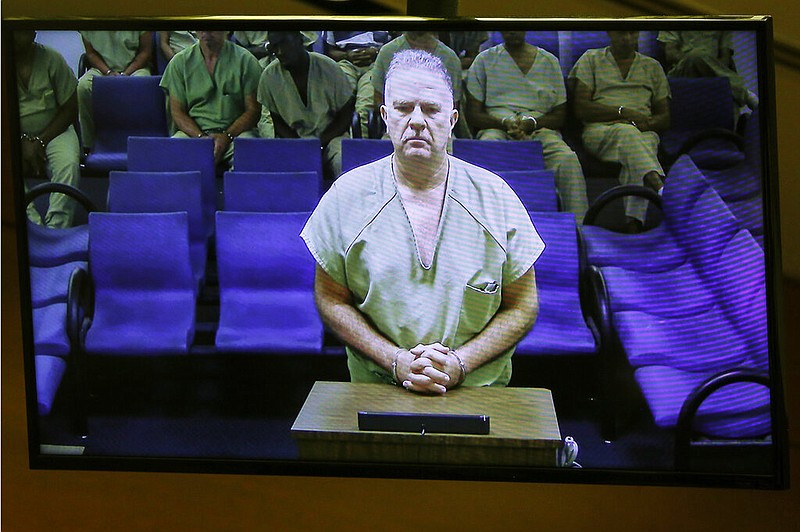COVID-19 has led to a backlog of felony court cases across Georgia, but teleconferencing technology put into place just months before the pandemic has helped avoid much of that problem in Northwest Georgia, according to a judge who presides over the area.
New legislation is needed, warns Judge Ralph Van Pelt Jr. of the Lookout Mountain Judicial Circuit, because the use of the technology is only allowed under a state emergency declaration. Such legislation has been attempted in recent sessions, he said, but it hasn't passed.
"A lot of people in the state are playing catch up," Van Pelt said in a phone interview, adding that Northwest Georgia is better off. He credits Catoosa County and the Bureau of Prisons for being forward-thinking in their use of technology, which also saves money by preventing the need for transporting prisoners and the expensive security that goes with it.
In his first State of the Judiciary Address earlier this month, Georgia Supreme Court Chief Justice David Nahmias focused on challenges to the judiciary based on the pandemic - including the backlog of cases plaguing many parts of the state and the use of teleconferencing for some hearings.
Van Pelt said some cases are better suited for in-person proceedings, especially domestic and civil cases. When multiple exhibits are required, having to email them to all the lawyers involved is a headache, he said. Divorce lawyers don't like video hearings either, he said, and witnesses without fast internet connections can often lead to glitchy testimony.
Jad Johnson is the chief public defender for the Lookout Mountain Judicial Circuit. The circuit covers the counties of Walker, Dade, Catoosa and Chattooga. Johnson said he thinks there's a little bit of a backlog, but not in less-populated counties like Dade and Chattooga.
For reference, he pointed out that due to the pandemic, from February 2020 to March 2021, there were no jury trials at all in Georgia.
"There are some, still, of those cases, hanging out there that need to be addressed that have built up since that time," Johnson said.
The vast majority of cases are settled through pre-trial intervention, Johnson said, but some of the most serious cases like murder or rape had to wait for jury trials to resume.
The court worked through that backlog by scheduling more calendar calls, Johnson said.
According to the Legal Information Institute, a calendar call "is a pre-trial meeting held by a judge with the attorneys of both the parties in a case to schedule a date for trial or hearing, and to arrange some other pre-trial details. Generally, a court session is held in which numerous cases are set for a calendar call at the same time and the judge schedules each of the cases for trial or hearing depending on the status of each case.
"Calendar calls are a standard legal procedure for almost all court cases and are particularly important in criminal cases."
Like Van Pelt, Johnson said teleconferencing doesn't work well for all types of hearings. He said the accused have the right to confront witnesses, and with teleconferencing, one can't know if the witness is using notes or being coached by someone off camera.
"There's a lot of information that isn't conveyed if that witness is appearing via video conference," Johnson said, including body language.
Teleconferencing can get his clients out of jail quicker sometimes because it eliminates the need for travel, Johnson said. But if a judge is deciding his client's fate, he wants them to be able to be there to look the witnesses in the eye.
"What the Constitution demands is what we should do," Johnson said.
In his address, Nahmias said the six-county Southwestern Circuit has more than 900 open felony cases, compared to 377 in 2019.
The state judiciary has learned a lot during the pandemic, including allowing responses at the local level rather than making broad statewide directives, Nahmias said. He also acknowledged that teleconferencing was a useful development sped up by pandemic demands.
As part of the effort to get back to normal, Nahmias credited Gov. Brian Kemp for allocating an additional $110 million in federal grants to court budgets, and for the state Legislature's commitment to addressing mental health and substance abuse in Georgia with new proposals and funding.
